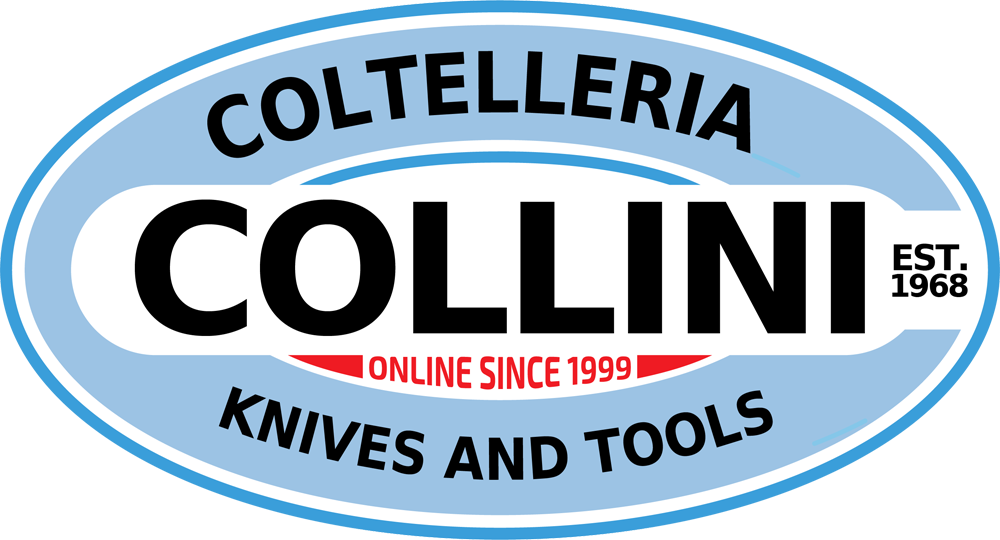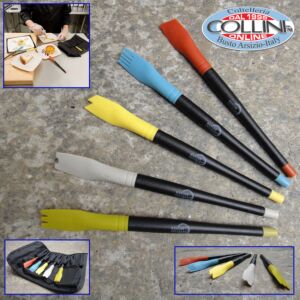Decorate and Modeling
-
Mercer Culinary - 4.25" Straight Spatula
4.25-Inch Straight Spatula by Mercer Culinary No matter what you have to ice, decorate, or smooth, Mercer Culinary has a spatula the size and shape you need for the job. This 6-Inch Straight Spatula is perfect for spreading frosting evenly over the sides of a cake. The blade is made of precision-ground stainless steel to provide perfect flexibility, while the molded polypropylene handle gives you a sure grip. At 4.25” it’s ideal for frosting the sides of a single 2-4” high cake. If you just haven’t been able to produce a beautifully frosted cake, try this commercial Straight spatula by Mercer Culinary—you’ll see what difference perfect flexibility makes! Mercer Culinary 4.25” Straight Spatula Details Precision-ground stainless steel blade Provides the ideal flexibility Straight design for frosting the sides Molded polypropylene handle for a sure grip NSE certified Designed for spreading, smoothing, and detailed work Easily maneuvers around rounded or square edges Dishwasher safe Blade dimensions: 4.25” x 0.75" Item #: M18840PM18840 -
Mercer Culinary - M15990 - 9-Piece Carving Tool Set
Mercer Cutlery M15990 Mercer Cutlery 9-Piece Carving Tool Set for creative garnishing. Effortlessly turn fruit and vegetables into attractive, appetizing shapes. Constructed of high carbon, stain-free steel. Handles are a combination of polypropylene and slip-resistant soft grip. Heavy-duty nylon storage roll included.M15990 -
Mercer Culinary - 8 Piece Silicone Wedge Plating Kit
Mercer Culinary - 8 Piece Silicone Wedge Plating Kit Entice guests before they take the first bite by using every wedge in this Mercer Culinary M35614 8 piece silicone wedge plating set to elevate your food's presentation. Included are 8 wedges designed to bring variety to your plate while allowing for an endless amount of possibilities. Use each wedge to create a unique design with your best sauce, puree, or coulis. Use Mercer Culinary's convenient color-coded system to quickly and easily identify the right wedge for the job. 8 Piece Silicone Wedge Plating Kit Wedge overall dimensions are 3 ¾" x 2 ½". Wedge tip width is 2 ¼". Set includes: M35606 3mm Graduated Lancet Arch M35607 Saw Tooth M35608 5mm Round Arch M35609 4mm Horseshoe Arch M35610 Angle M35611 Plain M35612 4mm Square Notch - 3 Gaps M35613 5mm Square Notch - 5 GapsM35614 -
Mercer Culinary - 6 Piece Silicone Brush Plating Set
Perfect size, perfect balance, perfect control. This set of easy-to-use brushes includes 5 different brush-head shapes for 5 choices of sauce or cream stripes. Each brush 7-5/8 inch overall, 3/4 inch width at brush head. Brush head is marked with company name on one side, item number on other side. Cloth bag closes with Velcro straps. High-heat nylon handle. 480F heat-resistant silicone brush head. Slip-resistant-even if wet-handle. Color-coded brush head. Matching color in handle tip to identify brush when head is immersed in liquid.M35615 -
Imperia - Gun biscuit maker
Cookies the new a cookie gun from Imperia has arrived. The product is completely made of steel, easy to use and very handy. With Imperia "Cookies" you can make cookies of many different shapes and not only that; in fact, in addition to the 14 disks/shapes it also comes with 4 nozzles that allow you to decorate cakes and fill them.
It can be said that with natural ingredients and imagination many cookies can be invented. Like all Imperia brand products, it is 100 percent made in Italy.
The kit consists of:
- 14 molds: Christmas tree, heart, butterfly, shamrock, helm, donut, snowdrop, petal, snowflake, primrose, daisy, sun, millerighe, smile.
- 4 spouts: filler, star, rectangle, crescent.
The long history of the cookie
It seems that the origin of cookies can be traced to Persia, as far back as the 7th century BC. Some historians assert instead that the first cookie was baked in ancient Rome. The earliest traces date back to texts attributable to Apicius, a Roman gourmet who lived in the 1st century AD, during the time of Tiberius.
The Middle Ages is the period in which there is the most evidence of products very similar to our cookies, including pan pepato, hard, crisp cookies, and the forerunners of the meringue. The cookie, as we know it today, is a French invention: in fact, in 14th-century Paris it was possible to buy tasty little wafers filled with fruit.
The word cookie comes from the Latin "biscoctus panis," bread baked twice, which becomes "biscuit" in English. In contrast, the term "cookie" has Dutch origins: in fact, it comes from the word "koekje," small or round cake, like the small pieces of dough that Dutch bakers used in their ovens to test the temperature. The first cookies also composed of butter and sugar entered the culinary scene in the 18th century. So many cookie recipes are found in the 19th century, when the availability of sugar, flour, and yeast became more continuous.
For example, the classic Cookie, or chocolate chip cookie was invented only in 1937 in Whitman, Massachusetts, USA. In Italy, for example, Savoiardi biscuits take their name from Savoy, part of the Savoy kingdom, and date back to the late 15th century, when they were created at the court of the Dukes of Savoy in honor of a visit by the King of France. The chocolate-coated cookie, on the other hand, only became popular after World War II.
8152







